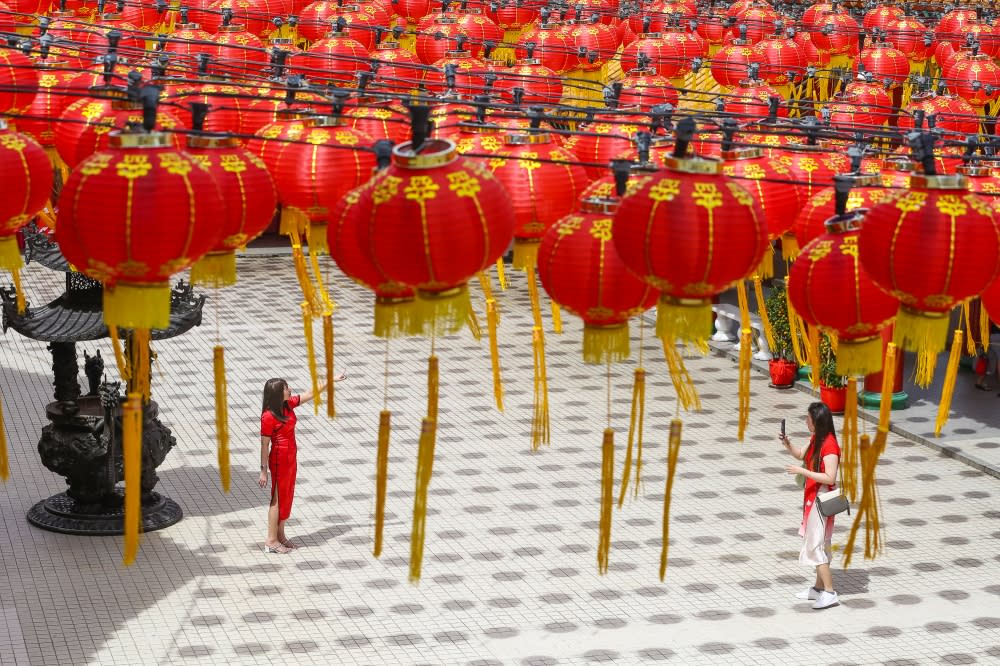 Malay Mail
Malay MailIs Chinese New Year only for the Chinese?

JAN 29 — To ensure further prosperity, my family and I have long been enthusiastic Chinese New Year celebrants. It is not something we’ve ever questioned; we are Singaporeans and so to us, Chinese New Year celebrations are near universal.
We sample pineapple tarts, eat too much at reunion dinners, hand out ang pows and though our house decorations don’t reach Deepavali levels, there are usually a fair amount of red cuttings etc out.
This year though, we found ourselves overseas for Chinese New Year but weren’t going to let that deter us.
So we went off to the largest Chinese restaurant we could find in our destination. We carefully ordered our 10 courses and gathered what friends and relatives we could to reunite with.
But when we arrived at the undeniably swanky restaurant and were escorted to our table — the Chinese chef who was produced to greet us looked confused and said, “But none of you are Chinese.”
We thought about this for a second and replied, “Well, we celebrate it.”
We then produced the Yu Sheng set we had brought from home for this occasion and proceeded to toss it enthusiastically.
The chef nodded slowly and said in Mandarin, “Malayia-ren.” (Malaysians) We felt no need to correct him because well, close enough.
In many ways, this particular way of celebrating with the tossing Yee Sheng and the huat ahs is from our corner of the world.
At our table that evening were two friends who had lived in Beijing and they were so amused by the tossing, having never seen it.
The dinner was excellent but it’s funny how we take celebrating Chinese New Year for granted when around the world the celebration is generally observed only by ethnic Chinese.
However, there is a lot about the celebration that is for everyone, everywhere.
More than any particular god, it celebrates family, fortune and looking forward to the future. You wish your nearest and dearest prosperity, health and chase away bad luck while trying to attract as much fortune and positive energy as possible. There’s lots of good food and fireworks — so what’s not to like?

Celebrated on the second new moon after the winter solstice — the 21st of December (the year’s shortest day) — the lunar new year is also celebrated in Vietnam and Korea. — Picture by Yusof Mat Isa
Celebrated on the second new moon after the winter solstice — the 21st of December (the year’s shortest day) — the lunar new year is also celebrated in Vietnam and Korea.
It usually takes place towards the end of January or early February which for my family at least brings a nice end to the festive season which starts with Deepavali in November, rolls through Christmas, New Year’s and ends with Chinese New Year.
I think for me anyway Chinese New Year means festivities are over, a new year has rolled around and it’s time to think about how we are going to tackle the new year.
In Singapore and Malaysia, celebrations are extensive. Years ago when the pace of life even in fast paced Singapore was a little slower, Chinese New Year was the only time the whole country seemed to rest for an extended period.
It was a genuinely festive and restful time and my family joined in enthusiastically.
I think over the years it stopped being our neighbour’s festival and became ours too, something we carry around the world with us like Yu Sheng from Sheng Shiong.
So, to everyone: Xin nian kuai le.
*This is the personal opinion of the columnist.


